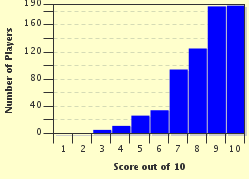Quiz Answer Key and Fun Facts
1. A - There's a country that used to give me a problem, but for some reason after I visited it, I could always remember the correct spelling. Can you spell the name of the country that we Yanks often refer to as "Down Under" or "Oz"? It's both an island and a continent, if that helps you.
2. B - When university graduation time comes along, this word is used a lot, so you'd best be sure to know how to spell it. Of what word am I speaking?
3. C - Our next word is an adjective that means a violent, sudden and usually tragic event. Please tell me how to correctly spell it.
4. D - This word is one someone doesn't want happening to his plans, that's for sure. It means something that serves to discourage or prevent one from doing what one wanted. It can also mean to prevent someone else from doing what they want, such as in a military sense. What is the correct spelling?
5. E - We see, and thus may have need to spell, this word often, particular having to do with business or the stock market, in particularly in the dot.com world. Would you have to look it up or do you know how to spell the word that would describe, as an example, the late Steve Jobs.
6. F - This word shouldn't be too hard, since we read it so much, particularly in the newspapers. But, you'd be surprised at how often it can be one that you have to hesitate before you write it. It means "from out of the country" or "alien". What is it?
7. G - This word is one meaning the descent, as an example, of your family. In other words, your family tree or, if you were a dog, we'd call it your pedigree. Would you pick that one out of the options given, please?
8. H - We all know this one, and if you can quickly, and correctly, spell it, good for you. I usually have to think hard before I write it. It's a word that means to express joy, praise, or thanks. There's a rousing chorus written by Handel we hear a lot around Easter that has this word in its name. Go ahead, tell me what it is.
9. I - Please select the correct spelling of the word that means "really, really small". Thank you.
10. J - This is a verb meaning to expose to risk, or to danger. We do this to our health if we smoke or overindulge in "spiritous" liquids. Which is the correct spelling, please. Remember, this is the US spelling.
Source: Author
habitsowner
This quiz was reviewed by FunTrivia editor
LadyCaitriona before going online.
Any errors found in FunTrivia content are routinely corrected through our feedback system.

